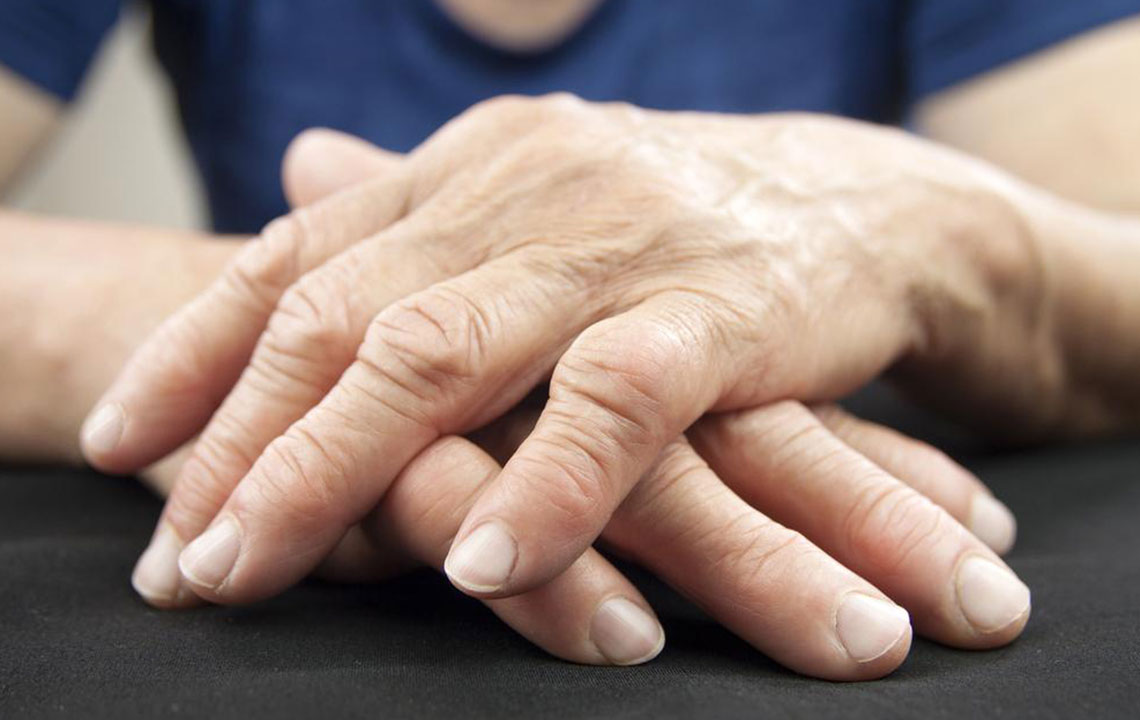Rheumatoid Arthritis – Symptoms, Causes, and Remedies

Rheumatoid arthritis is a condition wherein a person experiences chronic inflammation in the joints. This autoimmune disease is caused when the immune system that protects the body from bacteria and viruses begins attacking the joints. The inflamed tissues cause the inside of the joints to thicken, thereby leading to severe pain. It can also cause bone erosion and joint deformity in the long run.
The most commonly affected joints include the hands, elbows, ankles, and wrists. If the inflammation goes unnoticed, the condition can affect other body systems and cause severe physical disabilities. The cardiovascular and respiratory systems are usually affected.
Rheumatoid arthritis disorder begins with minor signs that occur every once in a while; however, with each passing week and month, the symptoms progress and become more severe. The symptoms that one individual experiences may not be the same as another. Moreover, the signs tend to differ with each passing day. Here are rheumatoid arthritis symptoms that one may experience:
Joint stiffness – Stiffness in the joints is one of the most common rheumatoid arthritis symptoms that people experience. This stiffness is often felt in the smaller joints, especially in the initial weeks. It begins with the hands and moves to the lower parts of the body, increasing rapidly over the course of two to three days. This stiffness can occur at any time, irrespective of whether one is walking down the street or wakes up from a nap.
Pain in the joints – When the joints begin to feel stiff, the same is followed by pain in the joints during an activity or even while resting. This is also one of the most common rheumatoid arthritis symptoms. Most commonly, pain may occur in the fingers and knees. However, the pain may become severe and continue to grow in the shoulders and feet.
Fatigue – Fatigue is a rheumatoid arthritis symptom that most people experience in all stages of the condition. Fatigue is caused by the body’s reaction to the inflammation and pain in the joints. The fatigue leads to the lack of energy and adversely affects one’s mood, attentiveness, and the overall lifestyle.
Swelling – The swelling of the joints is a very common rheumatoid arthritis symptom. Swollen joints are apparent on some days but may be minimal on a few, depending on the flare ups. The regular swelling of joints can cause inability to move or a loss of motion, especially in the fingers and feet.
Numbness – Inflammation in the joints exerts pressure on the nerves. This is one of those rheumatoid arthritis symptoms that leads to a feeling of numbness and tingling in the hands and feet.
Fever – The pain and inflammation in and around the joints can be accompanied with fever. As soon as one notices a few of these rheumatoid arthritis symptoms, it is an indicator that the condition should be treated immediately.
Here are the factors that increase one’s risk of suffering from rheumatoid arthritis:
– Men and women both, suffer from this condition. However, women are more likely to be affected by the same.
– People who have a family history of members suffering from the condition are at a greater risk of suffering from the same.
– Most commonly, rheumatoid arthritis is triggered after the age of 40. It generally occurs in older people; however, younger individuals too may run the risk of being affected.
– Obesity can be a trigger factor in leading to one developing this type of arthritis. According to studies, obese women in the older age bracket are at a higher risk of getting affected by this disease.
– People who smoke cigarettes are believed to be at a higher risk of diseases such as rheumatoid arthritis. This is especially in the case of individuals who have a history of ancestors who were and are affected by the disease. Smoking can also aggravate the condition and increase the severity of it.
There is no cure for rheumatoid arthritis. It is essential to consult a doctor who will help in controlling the symptoms and further aggravation of the disease. The following remedies should be tried at home to manage the condition effectively:
Relax and sleep well – People with rheumatoid arthritis should get enough sleep, especially at night. Relaxing during the day and not exerting one’s self too much will prevent flare ups.
Exercise – Regular exercise keeps the body healthy and is also a great way to fight symptoms that come with the disease such as swelling, fatigue and more. Practicing exercises such gentle stretching, regular walking, and swimming will keep the joints healthy. Hard-core exercise such as running and jumping should be avoided. However, it is a good idea to consult a doctor before practicing any kind of exercises.
Fish oil – Fish oil is believed to pack several beneficial properties that reduce swelling and inflammation on the joints. One can consume fresh fish or add supplements to the daily diet.
Cold pad – In case of severe pain, applying a cool pad to the affected area can bring temporary relief as it eases the tight muscles.



